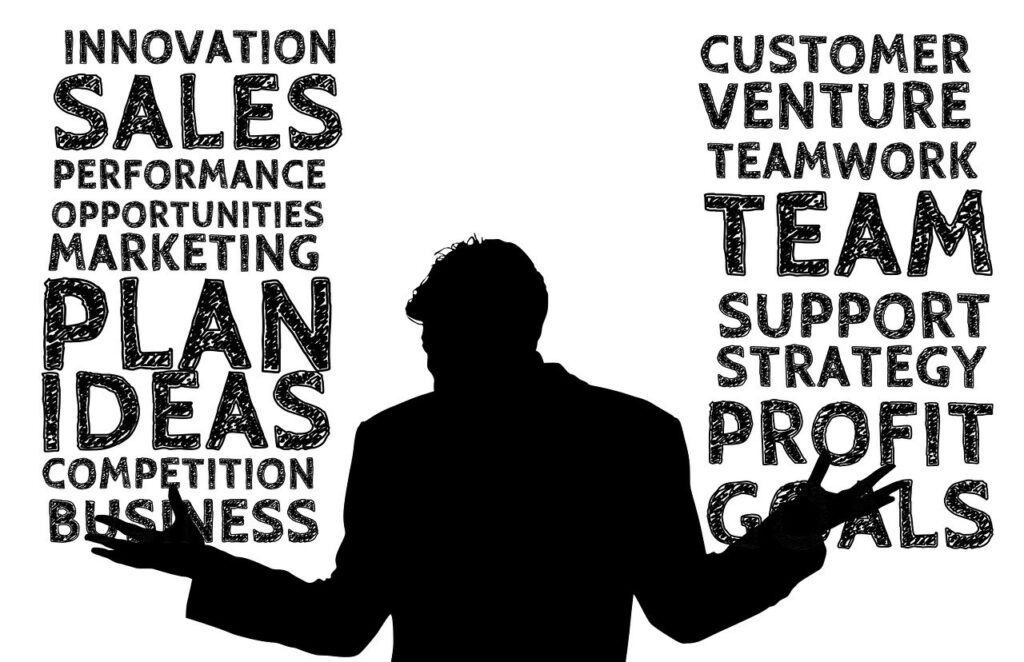B2B Market Research
Are your internal market intelligence reports unable to generate new ideas for B2B activities?
Are you seeking fresh ideas? Conduct B2B market research to build your marketing strategies.
This article is for those who are looking to conduct B2B market research to assesses market potential, understand b2b customers, supply partners, etc.
I am sharing my experience in the consumer market research and industrial market research space.

B2B Marketing
The unique features of B2B marketing are:
- Sell directly to the other business
- Higher service commitment
- B2B has a low number of customers
- Longer monetization
- Lower number competitions compared to B2C.
- Revenue per customer is high.
- Limited local competition but may get competition from different geographies.
B2B products are often more complex especially with the focus on product features and customization requests.
Longer buying journeys lead to more rational decisions.
Hence, B2B buyers are more “rational”.
The role of “after-sales” ie. customer service is a key differentiator between B2B and B2C.
For B2B products, the sales team stays involved with the customer in the form of account management.
B2B and B2C differ in marketing campaigns, communication, communication channel, etc. thereby require a different approach.
The B2C campaign focus is awareness and future consideration whereas the B2B campaign focuses on lead generation.
Lead generation, referrals, and personal relationship are key to B2B marketing
Hence, B2B communication focuses on logic rather than emotion.
The target respondent for B2B has a lot of aspects to evaluate – not only for their department but also related to other departments.
B2C Marketing
B2C sells to consumers through the trade channel, there is no service or limited-service commitment, faster monetization, etc.
There is a comparatively higher number of local competition in the B2C market.
B2C marketing is based on emotion as customers tend to purchase primarily on emotion than logic. The focus is on the benefits of the product or service on a more individual level.
Therefore, more focused on addressing unmet customer needs and communicating the emotional benefits.
B2C marketing campaigns are more straightforward and to the point than B2B.
As the B2C customer is busy and marketing material is flooded everywhere they look.
B2C marketing is designed to grab the potential customer’s attention and interest instantly and quickly.
Customers for B2C products are less concerned with elaborate and explanatory data.
Market Research
ESOMAR defines Market research as:
“Market research, which includes social and opinion research, is the systematic gathering and interpretation of information about individuals or organizations using the statistical and analytical methods and techniques of the applied social sciences to gain insight or support decision making.”
In both B2C and B2B market research, the data is collected but there are differences.
B2C market research
Business-to-consumer research (B2C) means the collection of data from individuals
B2B market research
Whereas, Business-to-business research (B2B) means the collection of data about legal entities such as businesses, schools, non-profits, and so forth.
The Pareto principle is something that factors into B2B research – 20% of customers accounting for 80% of revenue
Difference between B2B and B2C market research
The key difference between B2B and B2C market research:
- Business to business relationships is complex thereby the need for mixed methodologies. Qualitative (experience) data and quantitative are used to gain insight.
- The target market for B2B represents a specific population. Hence a smaller sample sizes to be used during market research projects. It is not only about the sample size but also the company size they represent.
- B2B studies require multiple interviews within the same organization. ie. influencers and different stakeholders. Multiple contacts give a deeper understanding of the business customer.
- Consumer marketing research is driven by the marketing team. However, in B2B market research study is initiated by the top management, and all the departments are involved in some way or other.
- In B2B market research the interviewer is required to interview as per respondent convenience.
The type of market research requirements may vary depending upon whether consumer marketing relationships are to be managed or b2b marketing relationship are to be managed.

Types of B2B market research studies
1. Market estimation/Market potential
These studies are conducted by interaction with persons engaged with a specific category whether in manufacturing, marketing, sales, trade channel members, category experts, demand-side experts, etc.
Such studies are conducted for B2B as well as B2C products to assess the market demand.
2. Customer-focused studies
These are generally customer perception and satisfaction studies. Here customers/stakeholders are engaged to understand the competitive performance. Financial institutions, manufacturing industries, service industries, etc. conduct such studies.
3. Corporate Brand Health studies
These studies are conducted to understand the quality of brand awareness, engagement touchpoints, brand perceptions, etc.
We can also understand the position of the company in a competitive context.
These provide a 360-degree evaluation perspective – Customers, suppliers, investors, banks and financial institutions, current employees, past employees, potential employees (management and engineering students), government organizations (based upon the level of engagement), Non-Government organizations (related to CSR activities), etc.
4. Communication studies
There are different types of communication studies:
- Pre-Ad test – These are conducted to understand if the ad meets the desired objectives. Evaluations enable fine-tuning the ad before the release.
- Post Ad evaluation – These enable us to understand the Ad performance in a competitive marketplace. What is the Ad reach? What is the key message recalled? What was the source of awareness? etc. These can be conducted for advertisement – Print, digital, OOH, TV., etc.
- Optimize spends on the media channel which gives a better return on Ad spends.
5. Understand the decision-making process
It is important to understand the decision-making process among key institutional customers.
These studies are conducted to have an assessment of the role of key stakeholders in the organization and which stakeholders need to be the focus.
If the company is already operational – The majority of the information is available with eth salespersons.
This information can be leveraged and market research can then focus upon filling the information gaps to formulate the decision-making process for the institution.
This will also enable us to understand the brand perception among the stakeholders and enable formulating strategies.
If the company is yet to start operations – This information enables them to understand the decision-making process in the institution and identify need gaps in the services of existing suppliers.
6. Customer Segmentation studies
These studies are conducted to bucket the customers having similar characteristics. Customer Personas enable formulating segment-specific strategies instead of one strategy for all. Such studies provide key inputs for Relationship marketing strategies.
7. Concept Evaluation studies
These studies are with key customers. Here apart from covering different customers, within one organization – the opinion of different state holders within an organization is also conducted.
8. Stakeholder perception
It is important to understand the stakeholder perception.
These studies are conducted to:
- Guage how the internal and external stakeholders think about the company management
- Assess the perception of stakeholders in case of negative news/events which impact the corporate image.
These studies are initiated by the PR agencies to understand the opinion of stakeholders, the general population, etc, and assess whether PR activities need to be initiated.
9. Evaluation of Event participation
Understand the impact of participation in the business event – Companies make substantial investments in participation in industry events.
For example – Automobile companies participate in the Auto Expo.
The Auto Expo is the biennial (once every two years) automotive show of India and the second largest Auto show in the world, held in the National Capital Region of Delhi.
Similarly, in other product categories, there are events at major metros.
B2B companies participate in such events for lead generation.
However, in a competitive context – stall attractiveness, ability to lead to customer engagement, salesperson interaction, etc. are key evaluation parameters.
10. Mystery Audit
Mystery Audits are conducted to ensure compliance with Standard Operating Procedures (SOP)
While mystery shopping is conducted to understand the salesperson/target group behavior in the normal context. Here the mystery shopper needs to represent an actual customer.
11. Employee Satisfaction
Employee satisfaction is conducted to understand how satisfied or content employees are with elements like their jobs, their employee experience, and the organizations they work for.
12. Other need-based B2B market research like pricing research, trade channel research, etc
Key to successful B2B market research are:
- Connecting with the right people – The stakeholder identification/decision-maker in B2B is more complex. There may be a titular head but there are other influencers too. It is essential to reach out to the maximum number of stakeholders as few persons will provide elaborate information.
- Create trust with the influencers and stakeholders – Creating trust the influencer and stakeholders are essential for scheduling appointments.
- Speak business – The discussion with the respondent needs to have a business context.
- Do the smart talk – B2B respondents do seek information. Any information about the competition is most welcome to the respondent. The longer one engages with snippets of information, the more information is one likely to get.
- Engage with experts with a purpose – Experts have a wealth of knowledge and conversation is at a macro level. Be clear on the information areas for an expert – It cannot be the same for stakeholders within a company.
Summary
It is essential that B2B market research is conducted by expert researchers that have the knowledge, experiences, resources, network, and tools to ensure the process is efficient and carefully controlled.
B2B market research guides your overall product strategy, informs your design decisions and your technical choices.
Connect with us for your market research requirement
